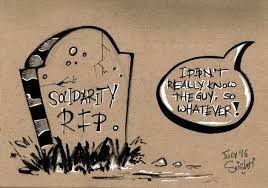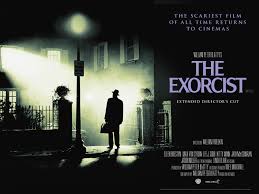OUR LORD JESUS CHRIST, KING OF THE UNIVERSE
“Are you the King of the Jews?” Jn. 18:33
Throughout the Middle Ages, the Catholic Church adopted many of the trappings we associate with people of power in those days. Little by little, decade by decade, the Church began mimicking the titles, dress, and palaces of the kings, princes, and lords of Europe.
These developments were intended to serve as constant reminders to secular authorities that the “Rule of God” was more important and commanding than that of any human ruling class.
The thinking went something like this:
If a king wears a crown, then the pope should wear a triple crown. Hence, the creation of the papal tiara, which was eventually retired in the late 20th century.
And while making those changes, many in the Church completely disregarded the scene so powerfully depicted in today’s gospel.
Here, Jesus is not speaking of wearing a jeweled tiara. Instead, he will be crowned with thorns.
Here, there will be no seating upon a gold-plated throne. Only a wooden cross.
Here, no trumpets will blare, no choirs will chant, no drums will boom.
All that will be found is a stark inscription claiming, “This is the King of the Jews.”
And yet, today the Church celebrates the feast of Our Lord Jesus Christ, King of the Universe.
In doing so, the Church attempts to emphasize the kind of kingship that Jesus represents … a kingship that redefines what true authority in this world really is.
It’s a kingship that eschews lording it over people. It’s a kingship that refuses all the riches common to leaders of the world. It’s a kingship that uses language like mercy and forgiveness.
It’s a kingship that can be summarized in one word: servanthood.
That virtue of servanthood is on full display in the crucifixion scene found only in the gospel of Luke. It’s the scene featuring two criminals hanging alongside Jesus. One of the two recognizes that he needs forgiveness. He says to Jesus: “Remember me when you come into your kingdom.”
Jesus, in excruciating agony while undergoing the cruelest and most degrading form of death imaginable, remains true to his identity as the face of God.
Jesus not only forgives but welcomes the man as one “who will be with me in Paradise.”
The idea of “paradise” is also richer than we usually think. “Paradise” refers not only to a blessed life hereafter, but also to the reality of a God who embraces the pain, hurt and heartache of people suffering throughout the world; a God who adopts a world immersed in the consequences of violence and homelessness and despair of one kind or another … and still another.
The other criminal hanging despairingly and bitterly next to Jesus perhaps represents the multitude of people throughout the world and the ages who have lost their sense of hope altogether. Paradise is there for them, too – because they can also be reached by the power of love overwhelmingly demonstrated by the God of the cross.
Mercy has been designated as the defining virtue of God by no less than Pope Francis. Mercy, he tells us, is “the name of God; it is his calling card.”
And the Gospels are replete with example upon example of the boundless nature of God’s mercy and forgiveness. God demonstrates this endearingly again and again, beginning with the beguiling story of Mary who in the poverty of a stable praised God for knocking the mighty from their thrones and lifting up the lowly; to the stories of Jesus healing the sick and raising the dead; to the father who rushes out to welcome his prodigal son; to the feeding of the hungry multitudes; and finally to the cross where Jesus is mocked, spat upon and nailed to a piece of wood.
All of it tells a story with one all-embracing theme:
Our God is the Lord of the universe – a God who chooses to be a merciful and infinitely loving Servant.
Ted Wolgamot, Psy.D.
NOTE:
I recently received a special note from a dear friend of mine, and a fellow priest from Kansas City named Gerald Waris. In the note, he sent a recording made by Steve Jobs, the founder of Apple.
In facing death, Mr. Jobs shared some very candid thoughts, especially about his regrets as he looked back on his life that made him a multi-millionaire.
To quote him, “I have had great success, but have very little joy. All of my wealth is very meaningless on a death bed. Material things if lost can be found or replaced. Love and cherish you friends, your family. Remember, a person owning a $300 dollar watch has the same time as a person with a $30 dollar watch. A person driving a $150,000 car and one driving a $30,000 car drive the same road and arrive at the same destination. You can live in a 3000 sq foot home or a 500 sq foot apartment. Loneliness is the same.
Several points for a fulfilled life: Teach your children to be happy, not rich. Eat your food as medicine, otherwise you will take medicine as your food.
There is a difference between a human and being human.
You are loved when you are born. You are loved when you die. It is up to you to manage the time in between.
Have a good diet. Exercise. Get sunshine. And remember: God loves you!”
Steve Jobs died at 56 years of age from pancreatic cancer.






